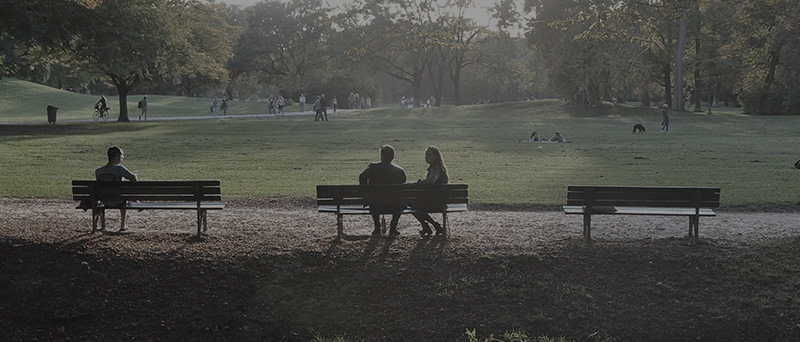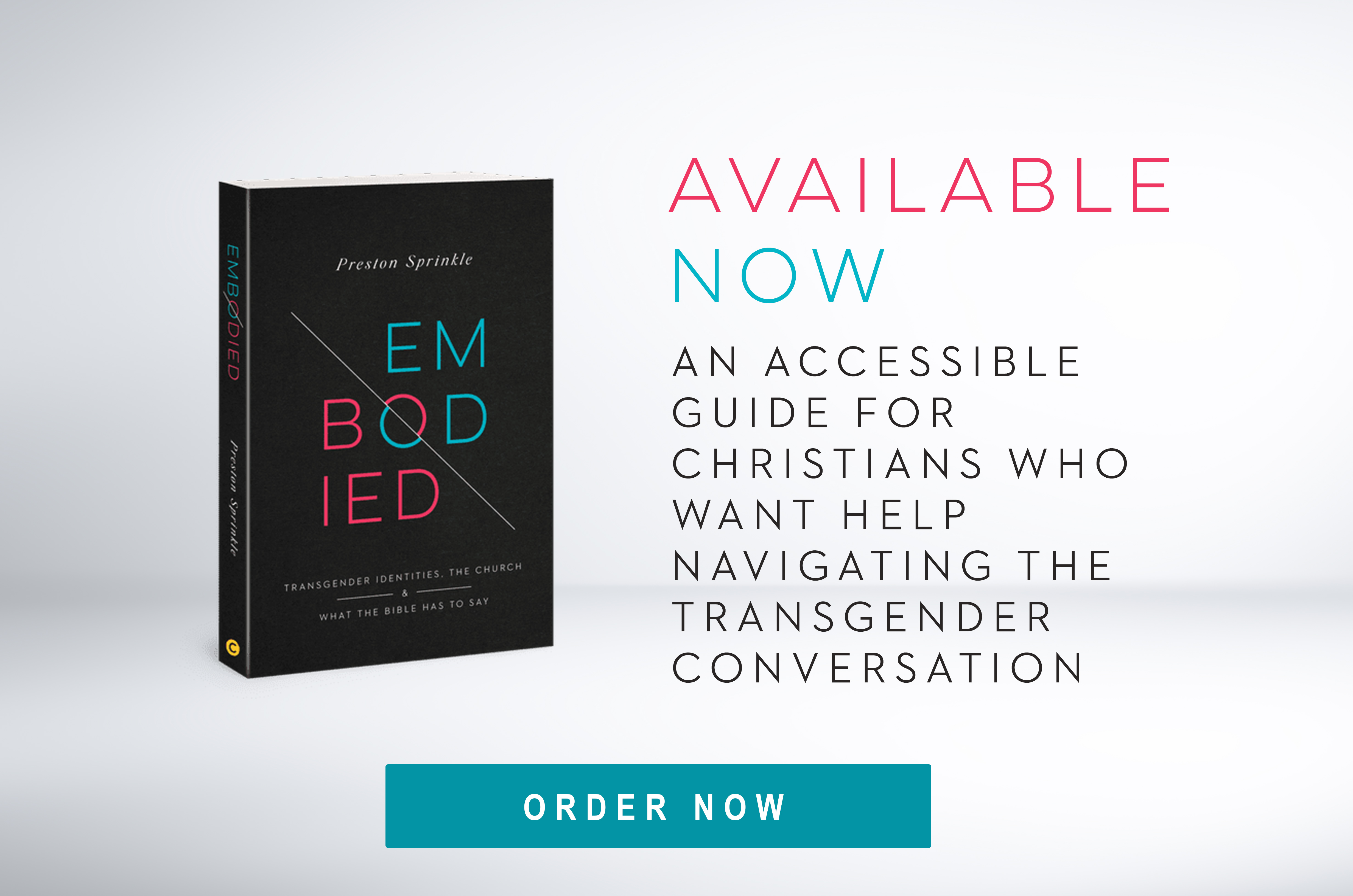
By Sam Wan. Sam is a local church pastor, a ministry worker in the space of sexuality and gender, and a board member for several disability ministries. He loves researching in practical theology, reading poetry, looking at art, and podcasting at Conversations with Earl Grey and Espresso and Earl Grey.
My friend called me in the middle of the day and asked if I wanted to have lunch at the park before he went back to the hospital to be with his wife and newborn child.
When I got there, he had some hot chips and a chicken burger, and I ordered a flat white from the café at the corner of the park. I found him at a park bench devouring his burger.
“Sorry mate,” he said. “I’ve barely eaten anything the last thirty-six hours since the start of the labour.”
As we sat together, me sipping my flat white, him eating his burger, he poured out all the things that had been weighing on him over the last week: fear about the fragility of their baby and what would happen when they brought him home; not having enough sleep and feeling grumpy and impatient; not experiencing a sense of immediate love for their newborn; walking out of the hospital, seeing a tranquil sunny environment, then walking back into the hospital suite and hearing the cries, tears, and beeping monitors; not wanting the two worlds of sunny tranquil life and crying chaotic parenthood to collide.
I sat there listening, breathing and drinking it all in.
Buy Now!
Embodied: The Latest from Preston Sprinkle
That same week, as this couple was getting ready for the birth, I was working through my own fears, emotions, and grief. Even though these things were related to my friend, I was wrestling with whether they would be helpful to share with him, especially in the midst of his first child’s birth.
I wasn’t sure how my friendship with him would look post-baby. I wasn’t sure about the changes that would occur and whether I would be a part of those changes. Different people process through change differently. Some need space, others need embrace. Some know they need space or embrace but don’t ask for it, while others don’t even know what they need. Any change affects individual persons and the interconnected relationships that surround us. In the middle of increasing changes, communication with one another is crucial, but as limited human beings we can only handle so much change and have finite resources. Wires may be crossed, people may experience hurt, and relationships may break down.
How, I wondered, would my friend’s major life change—the gift of a new child and the responsibility of parenthood—affect our friendship? Would his finite resources mean that his relational circles grew smaller, limited to nuclear family and other peers going through the same experience of parenthood?
Where is the space in these shrinking relational circles for a single person? Where is my space as someone whose entry into marriage and immediate biological family hangs upon invitation? Will invitation cease in exhaustion?
Is it loving to share these anxieties with my friend? How do I move forward?
Do I dare
Disturb the universe?
In a minute there is time
For decisions and revisions which a minute will reverse.[1]
As baby rooms are painted and decorated, baby showers and gender reveals are enjoyed, and the faith community gathers together in eager expectation, these events are precious celebrations of the beauties of life. They are also poignant reminders of loss for those who may never partake in these things.
A new friend of mine, Collin Brice, shares beautifully in his book Birds, Bees and Me:
“The truth is, as I am choosing to remain celibate, I am grieving something that will never be and has never been. In some ways, it’s different sort of grief than the loss of a loved one; in other ways, very similar. Depending on how psychologically flexible I am on any given day, I am malleable to both hope and delusion…. Even if I am surrounded by friends all day, I will go home to an empty house. My friends will get married and have their own priorities. I will be left in the dark.” (p. 22)
How do I walk the tension of joy and sorrow? How do we walk on the tightrope of celebration and lament? How do I join into others’ joys without entering bitterness? How do I mourn my losses without stripping others’ happiness?
Is my invitation for others to join me in this lifetime of balancing an act of love?
I grow old ... I grow old ...
I shall wear the bottoms of my trousers rolled.[2]
Greg Johnson, a celibate pastor, reflects in his new book Still Time to Care,
“When you’re straight and Christian, if you are particularly blessed, you can spend most of your life eagerly looking forward to the next big thing. When you’re young, you look forward to dating. While dating, you look forward to engagement. While engaged, you look forward to marriage. While married, you look forward to building your life together. Getting that first home. Getting pregnant. The baby arriving. Each baby milestone. Rolling. Crawling. Cruising. Walking. First word. First sentence. Then you can look forward to a second child. Then school, summer, school, summer, repeat. Then the graduations. Then marrying them off. Then the grandkids. If you are particularly blessed, you can spend an entire lifetime looking forward to the next life stage. One of celibacy’s challenges is not having that next thing to look forward to in this life. It’s a reality that can force us to confront the inner hopelessness of this life in a way that a married person might be too distracted to see. I don’t have that next thing. For me, I just am. I’m here.” (p. 239)
On that Tuesday, a couple of days after my friend’s first son was born, with a coffee in my hand under the shade of gum trees, I listened as my friend poured out his heart.
I sat there listening, breathing and drinking it all in. Not only was this one of the first times that my friend had been vulnerable with me, but it was a holy moment. It was a moment of grace from God.
It was a moment that the common myth of independence was broken, and the divine reality of interdependence was revealed. I did not need to push, I just needed to wait. I did not need to worry, I just needed to be present and patient.
No test or temptation that comes your way is beyond the course of what others have had to face. All you need to remember is that God will never let you down; he’ll never let you be pushed past your limit; he’ll always be there to help you come through it. (1 Cor 10:13, MSG)
In his outpouring, my friend welcomed me into his world, and I had the opportunity to enter into his anxieties and his dreams. He laid his anxieties and dreams under my feet, and asked: “Tread softly because you tread on my dreams.”[3] He seemingly had little to offer, but in presenting vulnerability, he had given me a gift. In his sharing, he loved me by letting me sit in the deep anxious emotions of fatherhood, emotions that I may never experience; I had the opportunity to walk his insecurities with him.
“I don’t know if it’s helpful,” he said to me, “and I’m aware that it’s not the same thing, but we would love you to be a very significant figure in this kid’s life.”
Our time together was short, and he had to dash back to the hospital soon after. But, in that smallness, my insecurities about him withdrawing from me were proven false.
I carefully folded and tucked the tender moment into my heart. Sitting and sharing the cup of his anxieties had been bitter, in a way. But the recognition of our shared grief—the proof of our interdependence in the midst of change—was also a balm for my soul.

